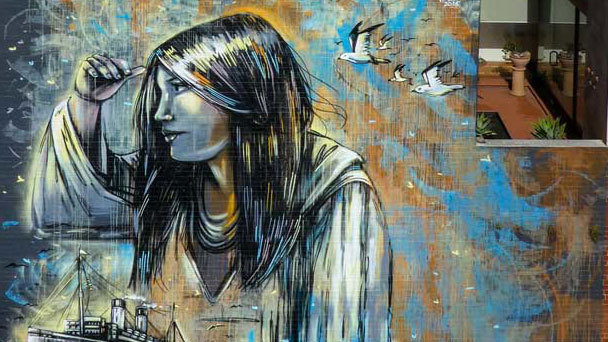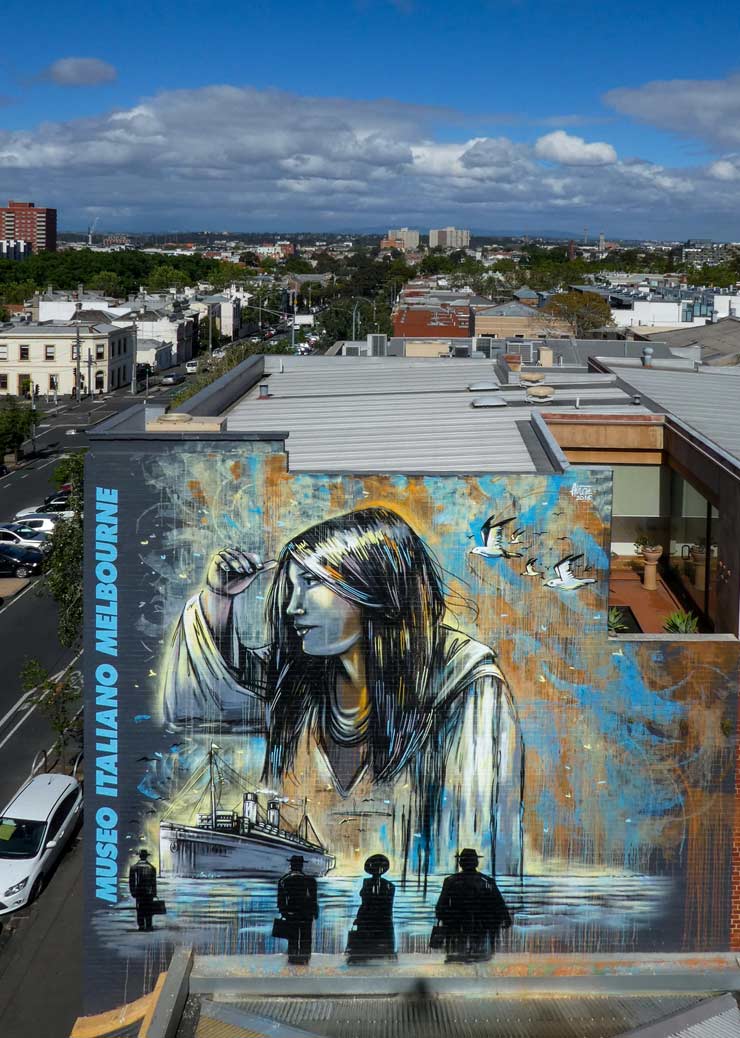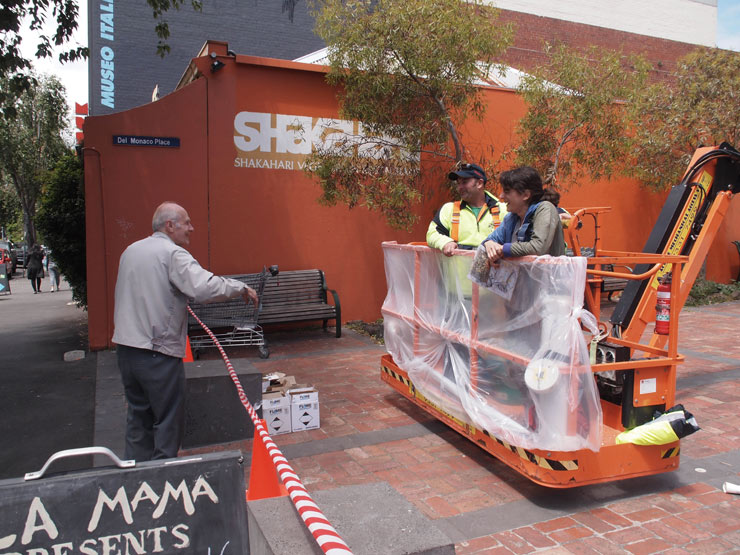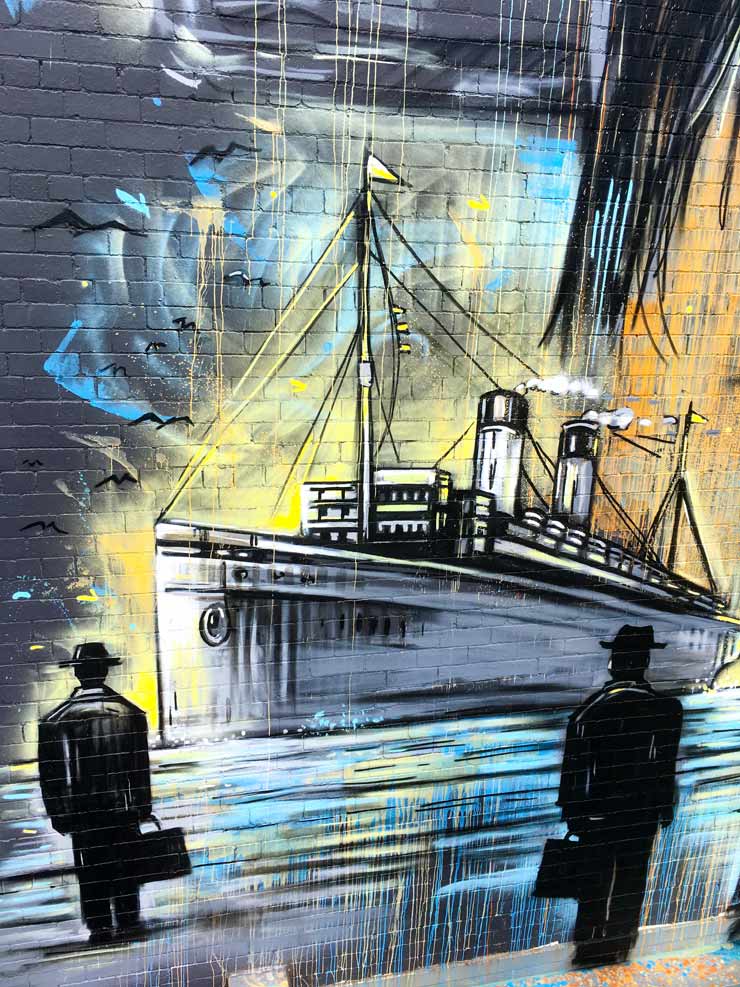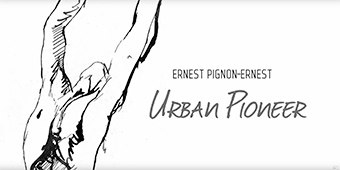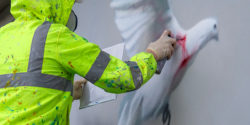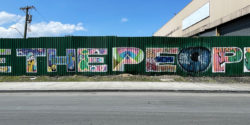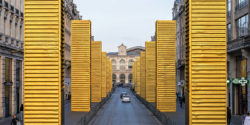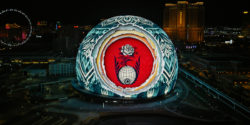Italian Street Artist and muralist Alice Pasquini pays tribute to immigrants and the struggle to leave one’s home to go to a new country to live with her new painting on the façade of Melbourne’s Italian Museum in Carlton.
Alice Pasquini. “Per L’Australia / Passenger.” Melbourne, Australia. November 2016. (photo © Lou Chamberlin)
Remembering historically how many people around the world were forced to immigrate to new countries is very important to do today as rhetoric fills the air in countries that would seek to scapegoat the victim – rather than the banks, war industry, oil industry, etcetera who are creating new refugees daily.
Almost no one wants to leave their home, their culture and their families by choice – they are usually forced to. They also invariably endure hardship and varying degrees of discrimination that compounds their struggle.
Alice Pasquini. “Per L’Australia / Passenger.” Melbourne, Australia. November 2016. (photo © Rick Utano)
“The wall is also personal to me, as I myself have family living in Australia,” says Pasquini. “I think that in our current times, it’s essential to remember that we all come from somewhere. Tracing a line through our ancestry, almost everyone has at least one relative who was a passenger at one point in time.
“We must remember this and the struggles they must have faced,” she says, “and recall that empathy, compassion, and knowledge lead to growth.”
A local resident stops to exchange stories with Alice Pasquini. “Per L’Australia / Passenger.” Melbourne, Australia. November 2016. (photo © Lou Chamberlin)
According to the Spartacus Educational website, the US also received a flood of Italian immigrants at the turn of the 20th Century, a fact which many Americans may not remember – along with the extreme prejudice that greeted many of these immigrants in our history. Says the website;
 BROOKLYN STREET ART LOVES YOU MORE EVERY DAY
BROOKLYN STREET ART LOVES YOU MORE EVERY DAY